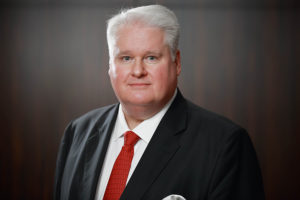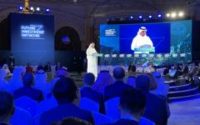ICAEW: UAE Economy Set To Fully Recover From Pandemic Losses In 2022
The latest Economic Insight report for the Middle East, commissioned by ICAEW and compiled by Oxford Economics, reveals the UAE economy is close to fully recovering losses brought about by the pandemic and last year’s energy price slump. Higher oil output, loosening of COVID-19 restrictions and the recent start of the delayed Expo 2020 Dubai are driving the recovery.
According to the report, continued fiscal and monetary support from the government also bodes well for the economic outlook. Following an expansion of 1.7% this year, ICAEW forecasts GDP growth of 6.5% for 2022, which will see the economy return to its pre-pandemic level in Q1 2022.
The oil sector has started to recover as OPEC+ eased production limits, and ICAEW forecasts a more significant increase in production next year, further driving GDP growth. The UAE will benefit from its production baseline being raised to over 3.5m barrels per day (b/d) from May 2022, from just under 3.2m b/d currently. The rise in oil output will be critical to boosting UAE GDP growth in 2022 and should remain an important driver of growth over the next decade as ADNOC aims to raise output to 5m b/d by 2030.
In tandem, the non-oil sector is expanding at its fastest pace since the crisis. ICAEW forecasts non-oil GDP growth of around 4% for the remainder of the year and well into 2022. The travel and tourism sector, which accounts for about 16% of GDP in the UAE, is a clear beneficiary – hotel occupancy rates in Dubai have risen above 80%, marking a three-year high. Although international visitors may be lower than the 25 million anticipated by the organisers, particularly given rising virus prevalence in Europe and headwinds from the Omicron variant, the rising demand from Expo 2020 Dubai will see numbers increasing throughout the event leading to a further pick-up in activity in the coming months.
The UAE recognises foreign capital and talent as critical to the country’s long-term development. In a bid to attract talent and develop a high-skilled and stable workforce, the government has announced a series of private labour law reforms, giving additional protection to workers and allowing flexible working. Dubai’s introduction of a five-year multiple entry visa for international companies residing in the emirate is another move to increase its competitiveness. According to ICAEW, these changes will help encourage greater investment and involvement by expatriates in the local economy.
Michael Armstrong, ICAEW Regional Director for the Middle East, Africa and South Asia, said: “The recovery in oil and non-oil revenue has bolstered government finances and means the outlook is good for the economy next year. Given its strong fiscal position, the UAE is well-placed to support a clean energy transition. We applaud the new projects that the UAE’s visionary leadership has implemented to achieve net-zero emissions by 2050. This will open up a world of opportunities for industries to make use of clean energy and technologies to drive sustainable growth.”
Scott Livermore, ICAEW Economic Advisor, and Chief Economist & Managing Director, Oxford Economics Middle East, said: “As it is elsewhere in the Middle East, Foreign Direct Investment is an essential pillar of the UAE’s economic diversification strategy, as the country aims to become one of the 10 largest FDI destinations by 2030. With the non-oil sector being a crucial pillar of Dubai’s longer-term growth ambitions, Expo 2020 Dubai and the move to switch its working week to align with global markets will help position the emirate as an attractive place to live, work, and invest.”
The UAE inflation rate turned positive in Q3 this year for the first time since 2018, due to rises in the price of transport, recreation and culture, and the cost of education. However, it remains at minimal levels – ICAEW forecasts inflation averaging -0.3% this year before rising to 1.5% in 2022, still the lowest in the GCC region.








 Email: info@cyber-gear.com
Email: info@cyber-gear.com